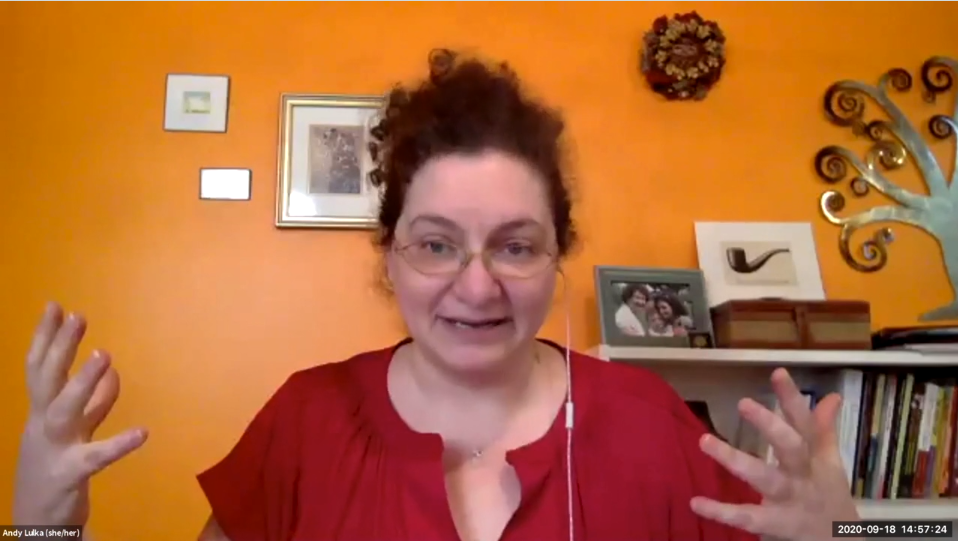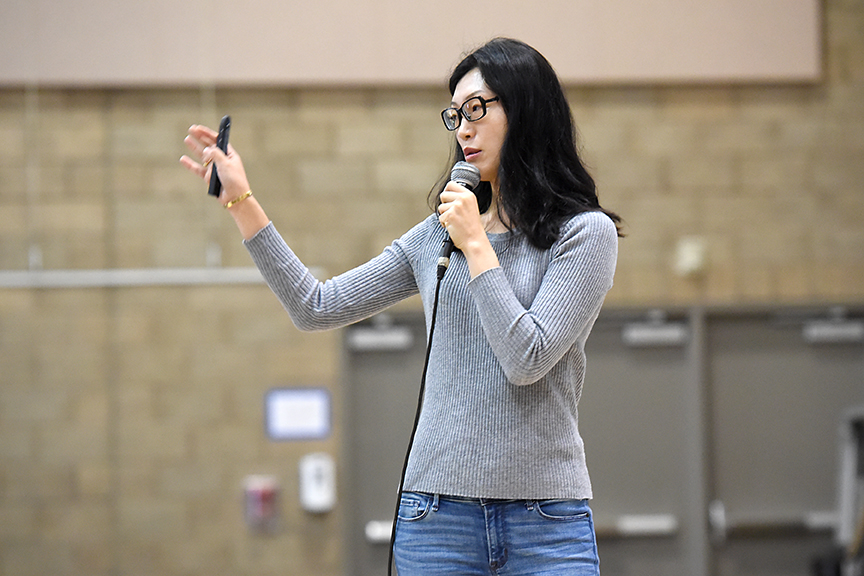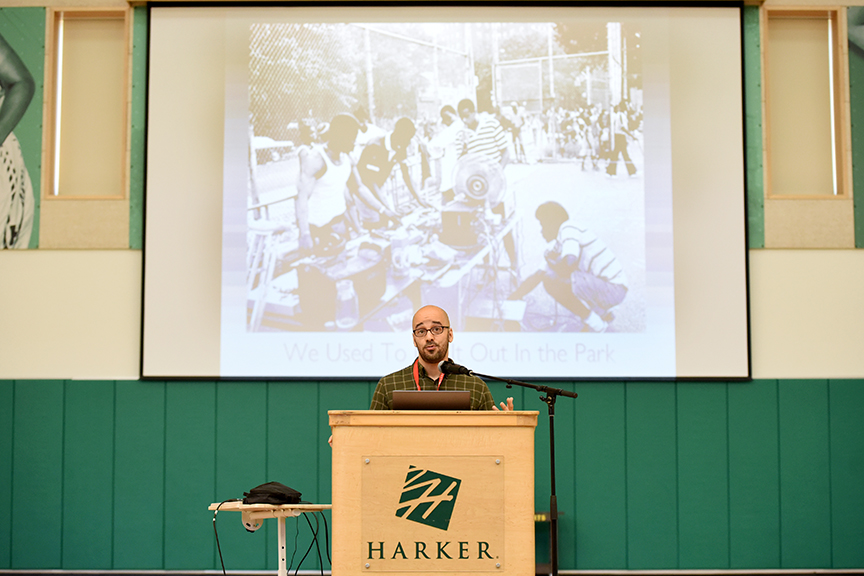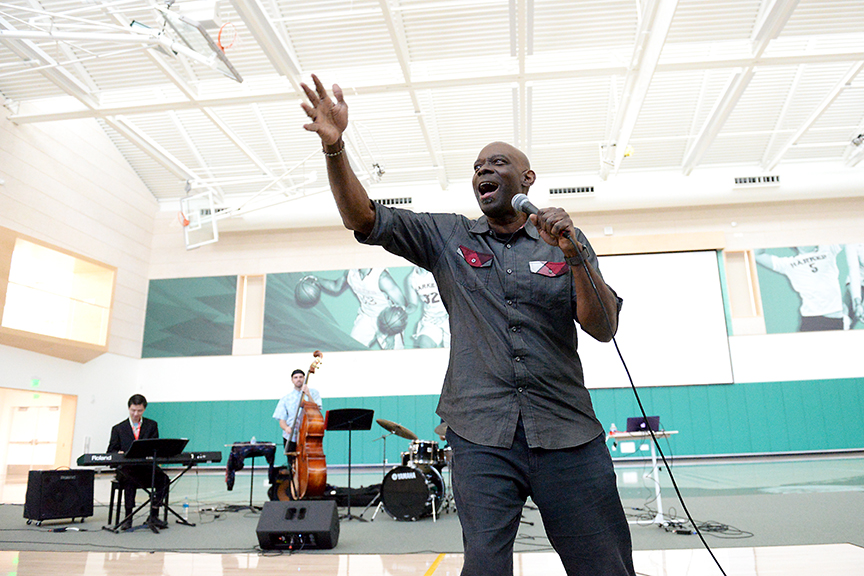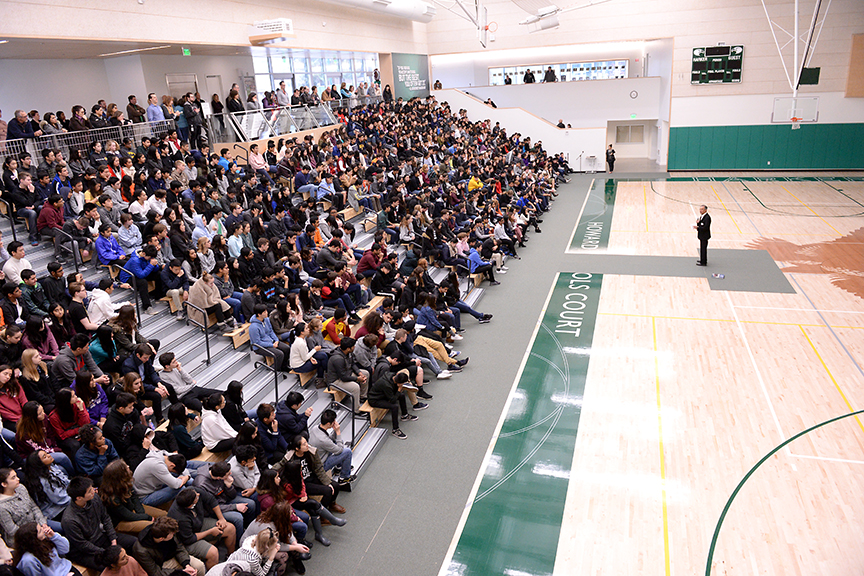On Tuesday, Harker’s LIFE (Living with Intent, Focus and Enthusiasm) organization held a special assembly featuring speaker, singer and author Justin Michael Williams.
guest speakers
First Windows and Mirrors assembly offers insight into Jewish communities
Last Friday, the middle school invited guest speaker Andy Lulka to the first Windows and Mirrors assembly.
‘Front Desk’ author Kelly Yang speaks to grade 4 and 5 students
Author Kelly Yang spoke to fourth and fifth graders about her book, “Front Desk,” inspired by her childhood experiences living as an immigrant to the United States. The book has won wide praise and numerous awards.
Cultural commentator Jay Smooth speaks at upper school morning assembly
On Monday morning, the upper school hosted a special assembly featuring cultural commentator Jay Smooth, who runs the popular video blog Ill Doctrine.
Langston Hughes Project gives stirring performance, inspiring master classes
The upper school received a visit today from the Langston Hughes Project, a fusion of music, literature and history led by Ron McCurdy, a professor of music at the University of Southern California’s Thornton School of Music.
Students learn about global poverty during special assembly
Today, upper school students attended an assembly that featured an appearance by Tom Nazario, an assistant law professor at the University of San Francisco…

